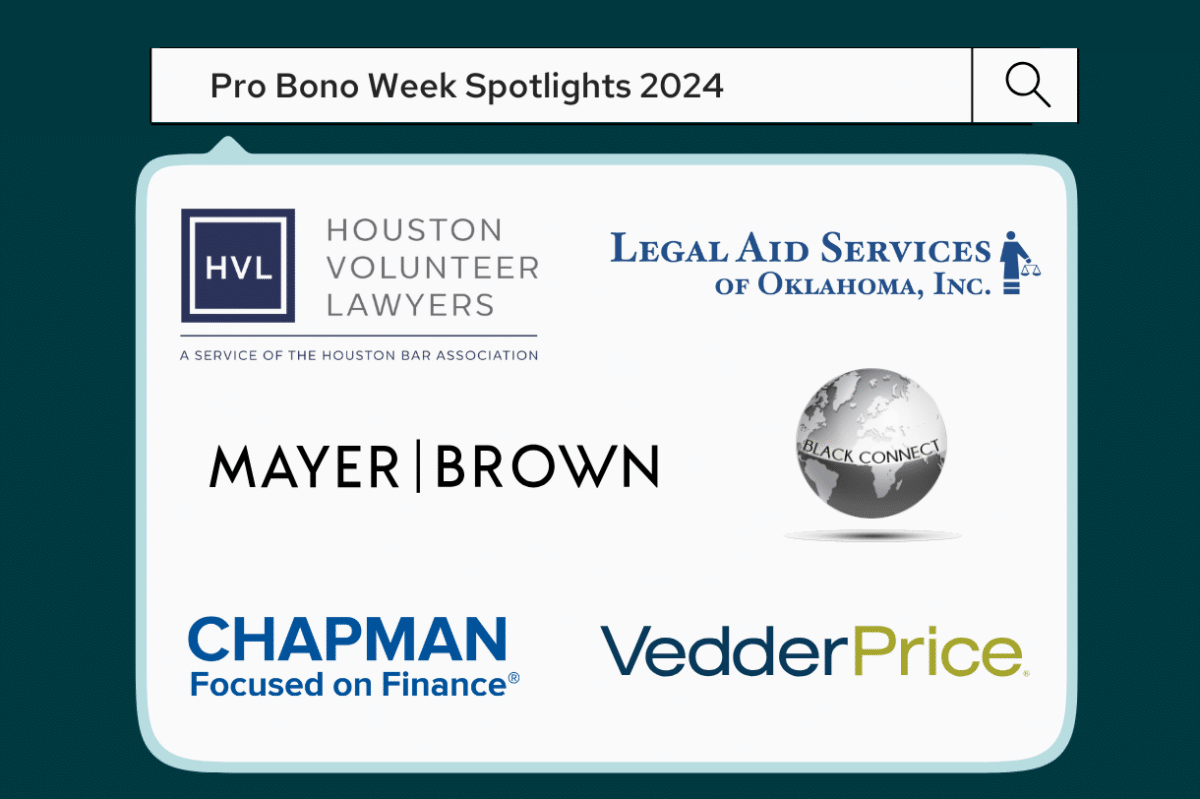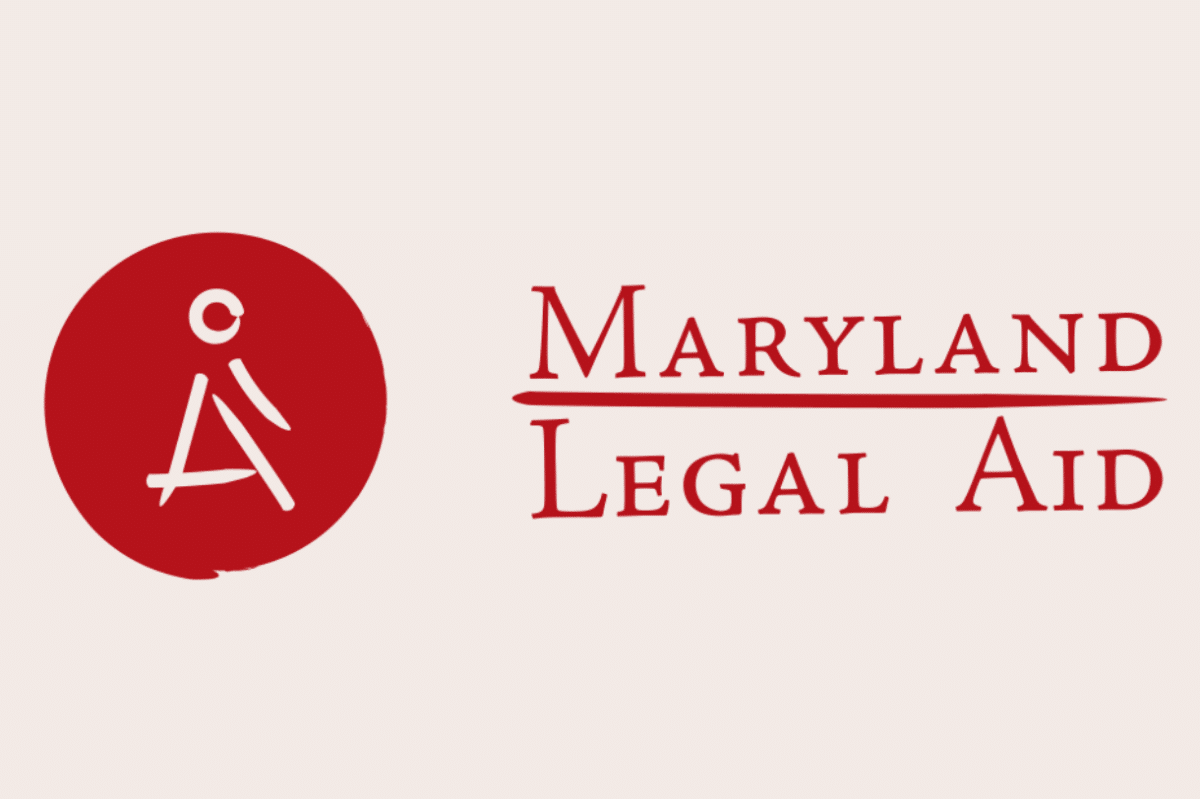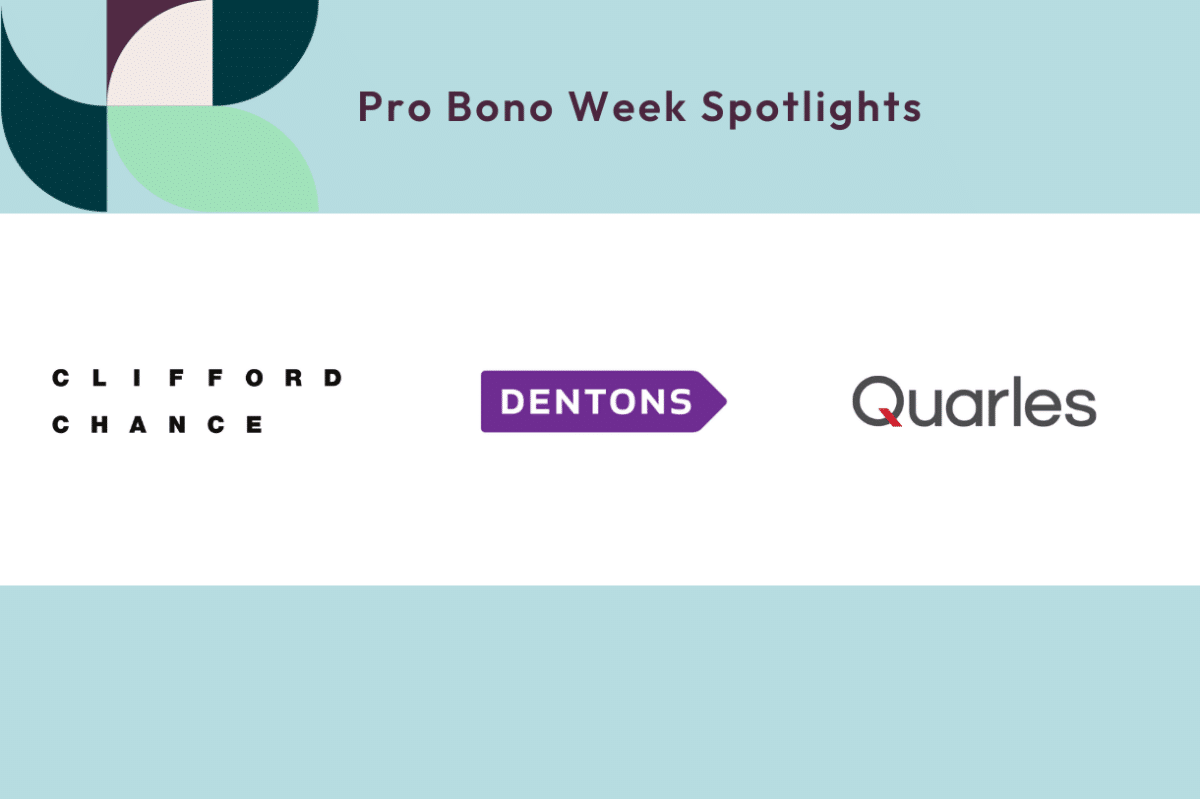During Pro Bono Week, I attended the American Corporate Counsel (ACC) Annual Meeting in San Antonio, Texas, the world’s largest gathering of in-house legal professionals. The conference attracted in-house lawyers from across the country, with panels and sessions spanning dozens of topics, including pro bono.
In the session, “The Chief Legal Officer’s Point of View: Doing Well and Doing Good”, hosted by the Pro Bono Institute, we heard from panelists on how legal professionals can have a positive impact on society, overcome the challenges of pro bono work, and align their pro bono efforts with diversity, equity, and inclusion (DEI) goals. Here are my key takeaways from the session:
Panelists:
- Eve Runyon, President & CEO, Pro Bono Institute
- Hossein Nowbar, CVP & Chief Legal Officer, Microsoft Corporation
- Marcus Brown, Executive Vice President & General Counsel, Entergy Corporation
The discussion revolved around several key themes:
- Engaging in Meaningful Pro Bono Work: Panelists emphasized the importance of pro bono work and how it can provide purpose, fulfillment, and gratitude to legal professionals. It was highlighted that pro bono work is not just an obligation, but also an opportunity to make a lifetime impact.
- Impactful Solutions to Common Challenges: Pro bono work is seen as a means to address the access to justice gap. Legal departments are encouraged to lend their voices, time, resources, and expertise to “move the needle” in the access to justice space. Common challenges that panelists voiced were the lack of malpractice insurance, inability to commit sufficient time to a pro bono opportunity, and the mismatch of opportunities related to a legal professional’s interests.
- Aligning Pro Bono Work with DEI and Social Impact: The panel discussed the need to align pro bono efforts with diversity, equity, and inclusion (DEI) and environmental, social, and governance (ESG) goals. This alignment was seen as a way to foster a strong organizational culture and a valuable skill set for both individuals and the company as a whole.
Engaging in Meaningful Pro Bono Work: The Power of Personal Commitment
Marcus Brown shared his journey into pro bono work. He began his commitment to pro bono while working at a big law firm, where he felt comfortable helping individuals who needed immediate assistance. He emphasized that pro bono work allowed him to practice law in a different way and personally engage in pro bono work, motivating others to do the same.
Hossein Nowbar shared his experience as an immigrant who recognized the power of law in serving the underserved. He stressed the sense of duty that pro bono work entails, highlighting that pro bono work is not just a few hours of a lawyer’s time; it’s a lifetime of impact for those receiving help.
Impactful Solutions to Common Challenges
Nowbar discussed the benefits of legal departments getting involved in pro bono work. It not only addresses societal imbalances, but also provides purpose and fulfillment to legal professionals. Moreover, it serves as a powerful recruitment tool, attracting individuals who seek a balance between work and their desire to make a positive social impact.
Brown drew a comparison between pro bono work within in-house legal departments and law firms. He highlighted factors such as time commitment, finding the right opportunities, and the issue of malpractice insurance being a main barrier to in-house lawyers engaging in pro bono.
Both Microsoft and Entergy adopted strategies to overcome challenges related to pro bono work. They now provide malpractice insurance, and Entergy encourages employees to participate through annual performance reviews, while Microsoft even includes pro bono and community service commitments as part of compensation. Recognizing that attorneys were just one part of the legal teams, they extended the opportunity for business professionals to participate as well. Importantly, they ensured that participants were paired up with experts in the field and had the time to engage in pro bono activities. Recognition and praise were emphasized as key motivators.
The panelists discussed the importance of selecting pro bono projects that resonate with the values of their teams. This approach helps employees commit more hours to projects they are passionate about. Legal Services Organizations (LSOs) were recognized for their role in providing opportunities, mentorship, and support. In-house legal teams often seek outside counsel for pro bono projects, creating fulfilling relationships.
Aligning Pro Bono Work with DEI and Social Impact: The Why and How of In-House Pro Bono
The session reinforced the ethical obligation for legal departments to engage in pro bono work. It was emphasized that pro bono work aligns with the corporate culture and serves as a valuable recruiting and retention tool. Microsoft, in particular, created an internal portal for pro bono opportunities, making it easy for their employees to find and engage in pro bono projects. They also introduced a program to give monetary incentives for pro bono hours, allowing employees to designate their hours towards charitable giving.
The session highlighted the evolution of pro bono work within legal departments. Microsoft’s Pro Bono Program, launched in 2003, was positioned within the legal operations department and supported by dedicated pro bono employees. Entergy emphasized the importance of having someone responsible for pro bono initiatives. This has allowed individuals within the company to focus on doing pro bono work, contributing to corporate social responsibility (CSR) efforts, investor relations, and ESG initiatives. In the current environment, the focus on Environmental, Social, and Governance (ESG) sometimes dilutes the attention given to pro bono work, but pro bono was deemed essential for keeping organizations grounded in their social responsibilities.
The discussion emphasized that pro bono work can help close the access to justice gap, particularly in regions with high poverty levels. Legal departments were encouraged to be intentional in lending their voice, time, resources, and support to access to justice initiatives.
The Future of Pro Bono Work
The session ended with a discussion of the future of pro bono work in legal departments. Technology, including AI and chatbots (and Paladin!), can play a pivotal role in bridging the access to justice gap. Microsoft is training large language models to assist with immigration cases, acting as co-pilots to draft immigration documents. The value of storytelling, showcased in annual pro bono reports with pictures and stories of beneficiaries, is influential in helping others understand the value of pro bono work.
The panelists encouraged others to continue doing the work and tell the story of their pro bono efforts, stressing the importance of leadership support and buy-in.
Final Takeaway
The ACC Meeting Conference session on “The Chief Legal Officer’s Point of View: Doing Well and Doing Good” showcased the power of pro bono work and its ability to drive positive change within legal departments. The discussion highlighted the impact of pro bono work on individuals, legal departments, and the companies they serve. It reinforced the ethical obligation to address the access to justice gap and the critical role of storytelling in raising awareness about the value of pro bono work. As legal professionals, aligning pro bono work with diversity, equity, and inclusion (DEI) and environmental, social, and governance (ESG) goals can foster a stronger culture and make a lasting difference in society. Pro bono work is not just an obligation; it is an opportunity for legal departments to do well while doing good.




